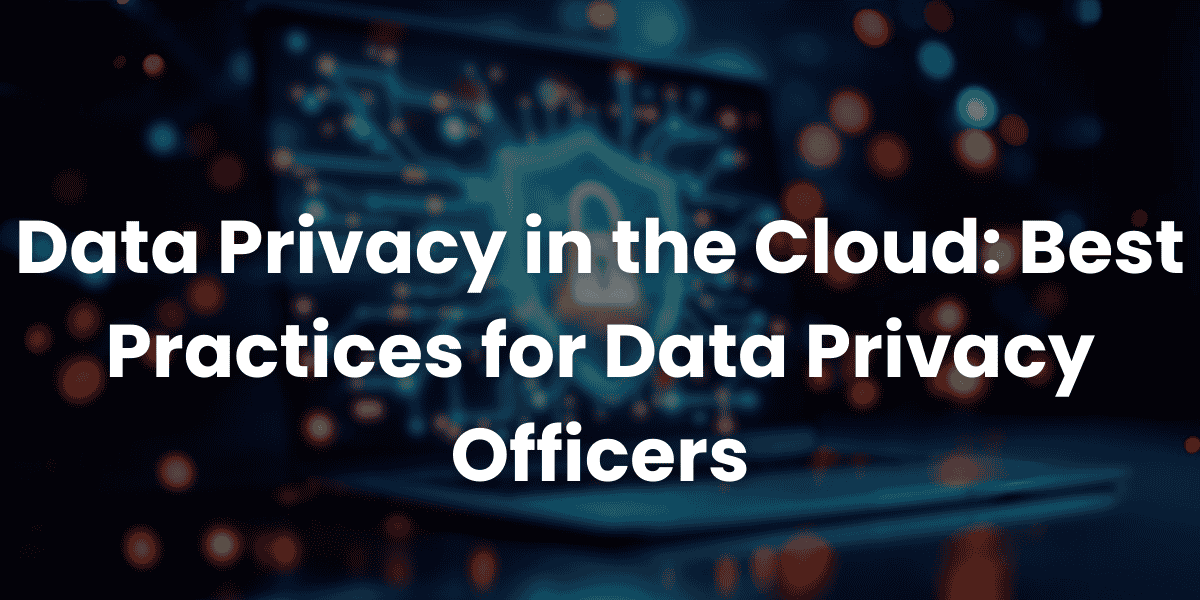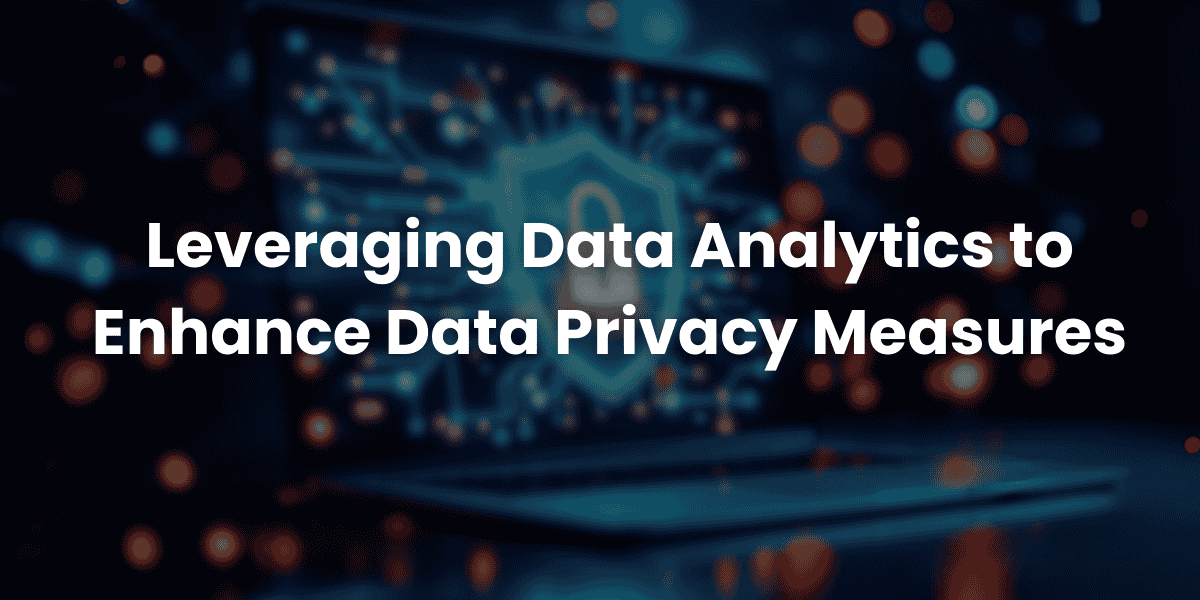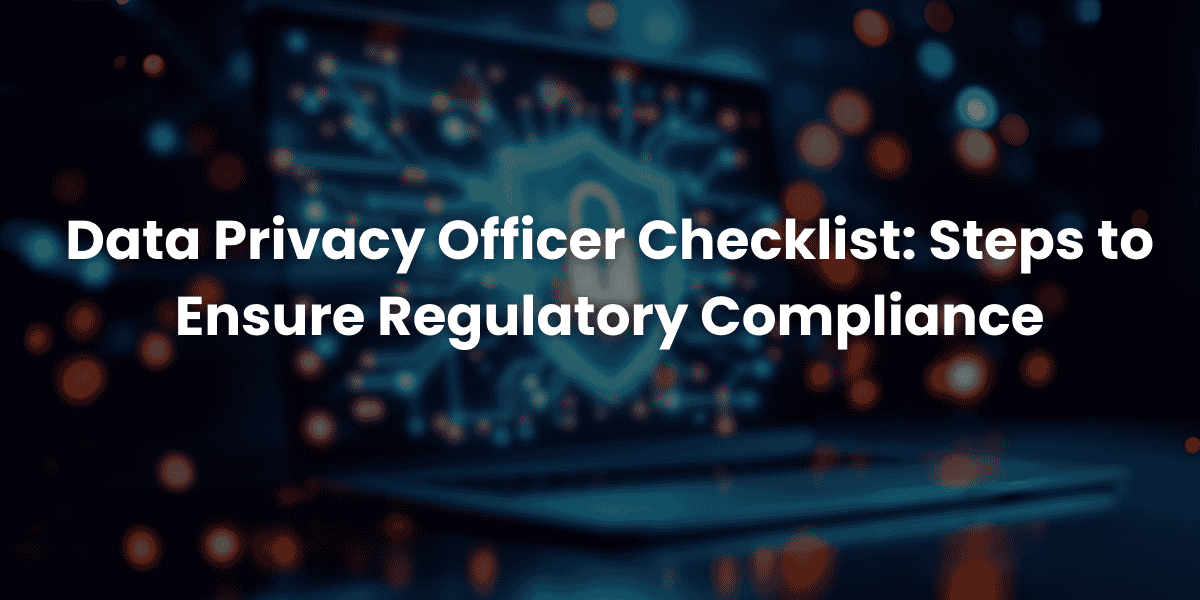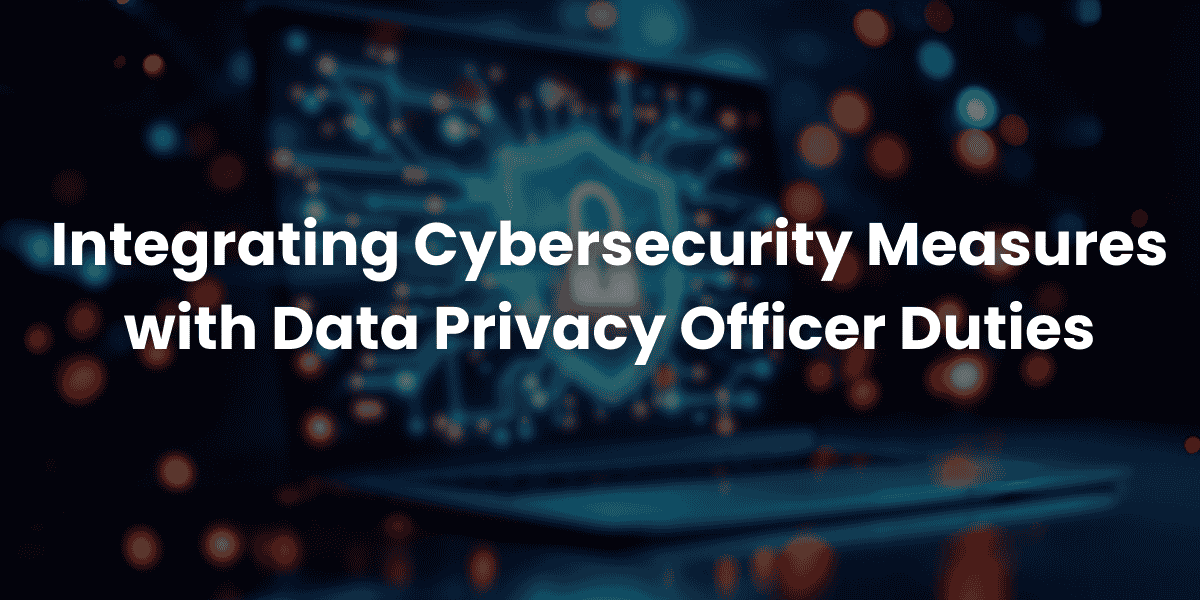In today’s regulatory environment, ensuring compliance with data protection laws is a top priority for organizations. A Data Privacy Officer plays a crucial role in guiding the organization through the complexities of regulations like GDPR, CCPA, and others. This checklist outlines key steps a Data Privacy Officer can take to ensure regulatory compliance and protect sensitive information.
1. Understand Applicable Regulations
A Data Privacy Officer must have a thorough understanding of the data protection laws applicable to the organization. This includes GDPR for EU citizens, CCPA for California residents, and other regional or industry-specific regulations. By staying informed, the Data Privacy Officer ensures that the organization meets all legal requirements.
2. Conduct a Data Inventory and Mapping Exercise
A Data Privacy Officer should perform a comprehensive data inventory to identify what personal data is collected, where it is stored, and how it is processed. Data mapping helps visualize data flows and ensures that all personal information is accounted for. This step is critical for identifying compliance gaps and vulnerabilities.
3. Develop and Update Privacy Policies
A Data Privacy Officer ensures that the organization has clear and up-to-date privacy policies. These policies should outline how personal data is collected, used, shared, and protected. Transparency in privacy notices builds trust with customers and demonstrates compliance with regulatory requirements.
4. Implement Data Minimization Practices
Data minimization is a core principle of many data protection laws. A Data Privacy Officer ensures that the organization collects only the data necessary for its operations. By limiting data collection, the Data Privacy Officer reduces the risk of breaches and ensures compliance with privacy regulations.
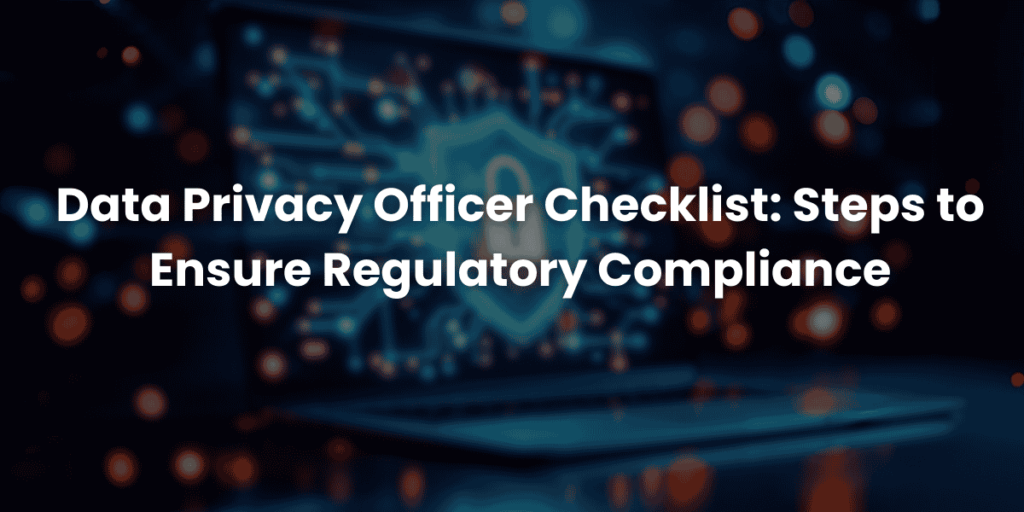
5. Establish Strong Access Controls
To protect sensitive data, a Data Privacy Officer implements strict access controls. This includes defining roles and permissions, using multi-factor authentication, and encrypting sensitive information. By ensuring that only authorized personnel can access personal data, the Data Privacy Officer minimizes the risk of unauthorized access.
6. Train Employees on Compliance Requirements
Employee awareness is essential for maintaining compliance. A Data Privacy Officer provides regular training sessions to educate staff about data protection laws and their responsibilities. Topics such as recognizing phishing attempts, securing devices, and handling sensitive data responsibly are covered to reduce risks.
7. Monitor Third-Party Vendors
Many organizations rely on third-party vendors to process or store personal data. A Data Privacy Officer ensures that these partners comply with the organization’s data protection standards. This includes reviewing contracts, conducting audits, and verifying adherence to privacy agreements. Monitoring third-party vendors helps mitigate risks associated with external data handling.
8. Develop an Incident Response Plan
A Data Privacy Officer develops a detailed incident response plan to address data breaches and other privacy incidents. The plan outlines the steps to take in the event of a breach, including containment, investigation, notification, and reporting. By preparing for potential incidents, the Data Privacy Officer ensures that the organization can respond quickly and effectively.
9. Conduct Regular Audits and Assessments
A Data Privacy Officer conducts regular audits and privacy impact assessments to evaluate the effectiveness of data protection measures. These evaluations help identify areas for improvement and ensure that the organization remains compliant with evolving regulations.
10. Stay Updated on Regulatory Changes
Data protection laws are constantly evolving, and a Data Privacy Officer must stay informed about updates and amendments. Subscribing to industry newsletters, attending webinars, and participating in professional networks are effective ways for the Data Privacy Officer to remain current and ensure ongoing compliance.
Conclusion: The Role of a Data Privacy Officer in Ensuring Compliance
A Data Privacy Officer is instrumental in ensuring that an organization complies with data protection regulations while safeguarding sensitive information. By following this checklist, a Data Privacy Officer not only protects the organization from legal risks but also builds trust with customers and stakeholders. These steps position the organization for long-term success in an increasingly regulated digital landscape.


